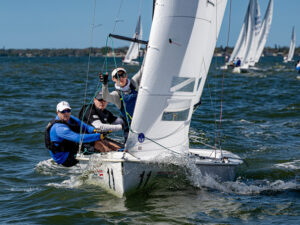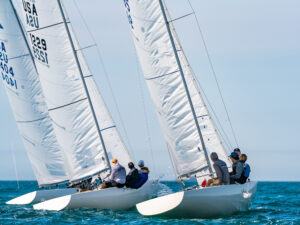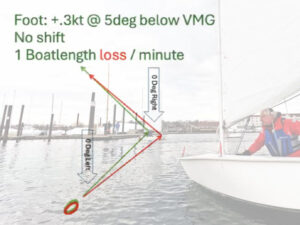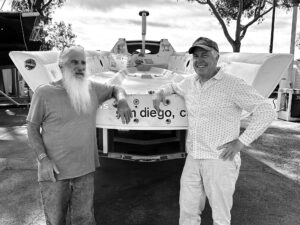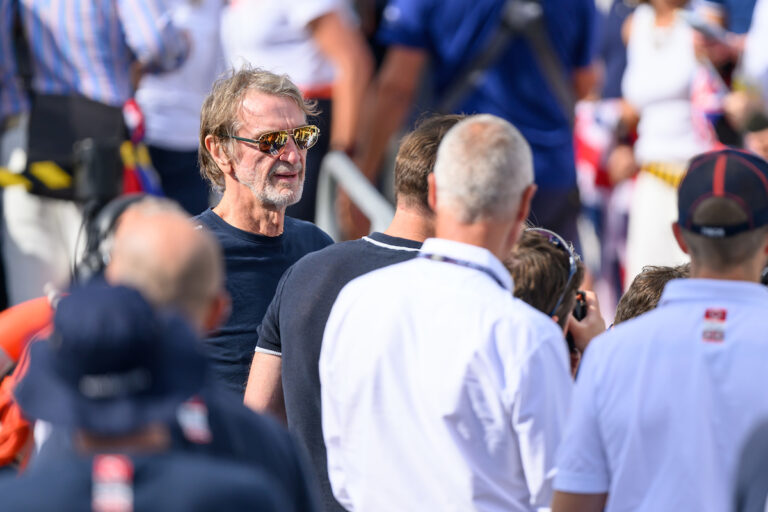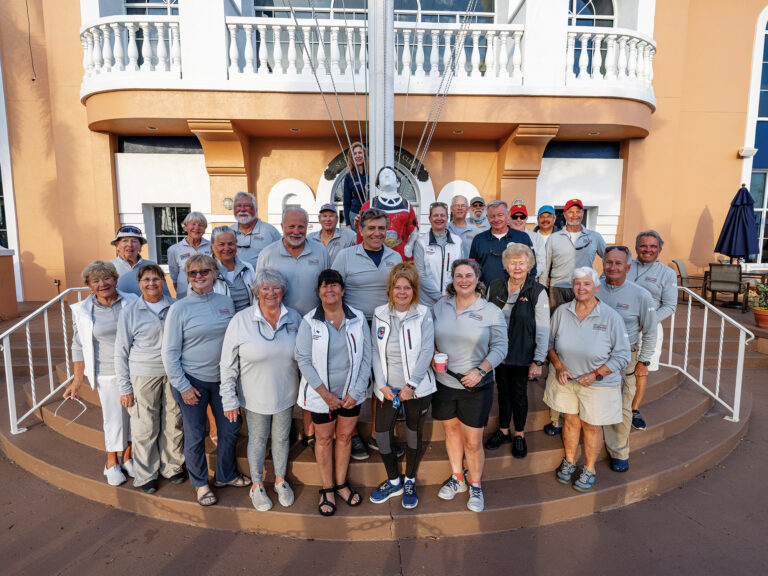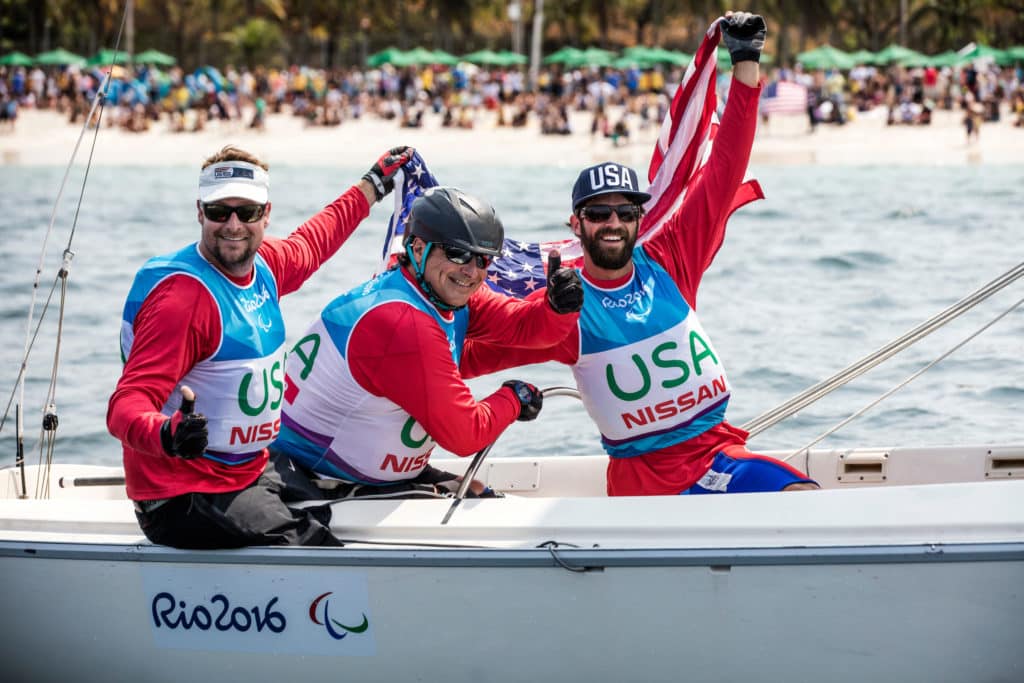
Rio 2016 Paralympic Sailing Competition
The path to Paralympic silver medals for the US Sonar team reached a turning point at the 2016 Sailing World Cup in Hyeres, France. Going into the final day, Rick Doerr, Brad Kendall and Hugh Freund were leading, which required them to wear yellow jerseys and compete with a large yellow dot on their sail. It was a big deal, and a lengthy wind delay did nothing to calm their nerves. By the end of the day they had dropped two places in the standings. As their coach, I had spent all my time honing their racing skills, but with their world championship just six weeks away, and the Rio Games five months away, it was time to help them get over this mental hurdle.
“How do I coach that?” I asked Charlie McKee, the US Sailing Team’s High Performance Director. McKee connected me with the team’s sports psychologist Jerry May, who has guided Paralympic, Olympic, and professional, athletes across many sports.
“There is a range of optimal arousal to achieve optimal performance,” May told me. “If an athlete is too relaxed it is hard to perform well because they need a high level of mental energy to focus. But, too much turns into agitation, making it impossible to focus on rational decisions.” The goal, he added, is to “find the level of arousal which leads to an optimal level of performance.” The challenge, however, is that the desired level is highly individualized.
When the stakes are high, nervous energy is also high, so the challenge I faced with my Sonar sailors was to figure out how to knock down the stress. I started with what works for me, which is to acknowledge and accept that anxiety is natural and unavoidable. The solution was to shift their thoughts from results to the process of sailing well. If they could compartmentalize the components of sailing, they would avoid getting too amped up when things got intense. When the emphasis is on results and things don’t go as planned (as is inevitable), the wheels fall off.
To refocus the team, we wrote down process-oriented goals that were about enjoying the journey of learning. For example, some of these goals were about starting:
Line sights: Check it at least three times.
Final port tack approach: Jibe onto port into a low-density area to avoid traffic.
Choose where to set up on starboard: Tack either below or beyond a pack, not in it.
Each of these goals addressed something specific that we agreed might help their starts.
This approach took the team’s emphasis off of their finishes, making debriefs more productive. Instead of pinpointing things that went wrong and assigning blame, it was less emotional for us to discuss the specifics components of specific aspects of the race, such as starting.
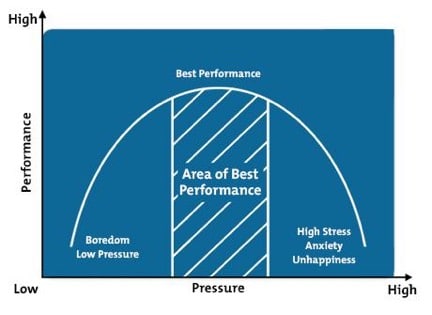
To help temper emotions and the resultant stress, we worked on instilling a culture of forgiveness. Expecting perfection, then dwelling on what went wrong and who was at fault is counterproductive. Whether they were hard on each other or themselves, it’s far more successful to forgive and simply focus the next move.
Dr. May was emphatic that words should be chosen carefully because they have a direct effect on cardiovascular changes, respiratory changes and muscle tension. “Saying ‘don’t’ usually produces tension and indicates what not to do,” he says, “but does not indicate what we should do.
“Instead, use a more task-oriented word that indicates what to do to increase the probability of doing the task well.” May suggested phrases like: “Hit the start line” or “stay present.”
“Think process and tasks,” he said, and a keyword for resetting when things go wrong. Ours was “Helicopter,” which referred to an idea that if we dropped the team into the middle of a race from a helicopter with no knowledge of what happened in the race so far, they would work hard for a comeback, with no undue emotion and no blame.
Leading up to and during the Games, the team tried their best to train for pressure. We simulated racing under pressure by turning it up, even in short three-boat training partner races. I had no illusions that we would be able to replicate the last race of the Worlds or Paralympics, but at least it kept it in the forefront. Both were intense, and as it turned out, our time was well spent.
Ricky Doerr, Brad Kendall and Hugh Freund hung onto their yellow jersey position to win the Worlds 6 weeks later in Medemblik, Holland by coming back from an 11th at the top mark and keeping their composure to finish third in the final race. Similarly, in the Paralympic Games a few months later, they once again found themselves in a battle –this time to retain their Silver Medal position. Four other teams were close at their heels, but they stepped up to win the final race and secured their Paralympic Medal.
Goals and Goalposts
For Rio, we wrote specific goals to address mechanisms to handle pressure. Here’s what we came up:
- It does not matter if you are a newbie vying for third in your club spring series for the first time or a seasoned veteran at a World Championship or a Games, if you race enough, sooner or later you will be in position to achieve something meaningful to you.
- When that happens, embrace the pressure for what it is.
- Close the deal by using the stress to your advantage.
- Take a deep breath and release –everyone feels pressure, you just need to handle it better than the next guy.

